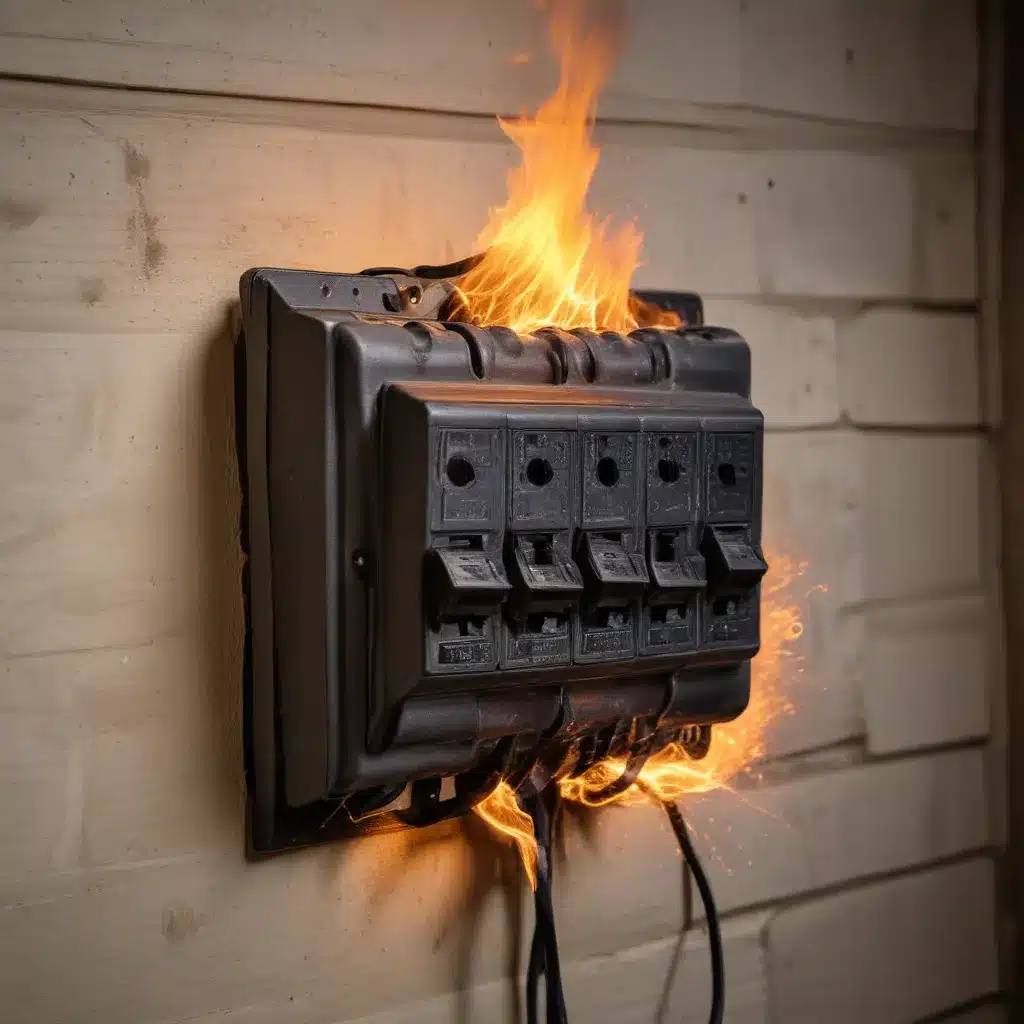
Understanding Electrical Fire Risks in Homes
Electrical fires pose a significant threat to homes, causing immense property damage and endangering lives. More than 40,000 electrical fires occur in residences each year, resulting in hundreds of deaths, over 1,000 injuries, and more than a billion dollars in property damage. These devastating incidents often arise from seemingly innocuous sources, making it crucial for homeowners to proactively address electrical safety.
Electrical fires can originate from a variety of hidden sources, such as damaged wiring, overloaded circuits, and malfunctioning appliances. Cords can become weakened over time due to wear and tear, and loose connections or exposed wires can lead to arcing and sparking – potential ignition sources for a fire. Additionally, misusing extension cords or running them under carpets can cause heat buildup and further increase the risk.
Older homes, in particular, may have outdated electrical systems that no longer meet modern safety standards. Circuit breakers and fuses that are not functioning correctly can fail to trip when overloaded, allowing dangerous conditions to persist. Faulty outlets and switches can also indicate underlying electrical issues that require immediate attention.
Electrical Safety Inspections and Maintenance
Conducting regular inspections and maintenance of your home’s electrical system is crucial for preventing electrical fires. As a homeowner, you can take several proactive steps to safeguard your property and family:
Visual Inspections
Regularly examine your home’s wiring, outlets, and appliances for any signs of damage or wear. Look for frayed cords, exposed wires, or overloaded circuits, which are common contributors to electrical fires. If you notice any issues, address them promptly or consult a licensed electrician for professional assistance.
Outlet and Switch Checks
Use a tester to ensure your outlets and switches are powered and grounded correctly, protecting against electrical shocks. If you observe any unusual heat, discoloration, or buzzing sounds, these may indicate underlying problems that require immediate attention.
Circuit Breaker and Fuse Maintenance
Ensure your circuit breakers and fuses are functioning correctly and replace any malfunctioning components. Become familiar with the location of your circuit breaker panel and learn how to reset a tripped breaker. Regular maintenance of these critical safety devices can prevent overloading and potential fires.
Smoke and Carbon Monoxide Detectors
Ensure your smoke and carbon monoxide detectors are in working order by testing them monthly and replacing the batteries annually. Consider installing interconnected alarms that sound simultaneously, providing a comprehensive alert system throughout your home.
Professional Electrical Inspections
For older homes or if you have concerns about your electrical system, consider hiring a licensed electrician to conduct a thorough inspection. A professional assessment can identify and address any underlying issues, such as outdated wiring or insufficient capacity, to enhance the overall safety of your home.
Electrical Load Management and Appliance Safety
Proper management of your home’s electrical load and responsible use of appliances are essential for fire prevention.
Circuit Overloads
Avoid overloading circuits by distributing electrical devices evenly across multiple outlets and circuits. Use power strips with surge protectors to safely manage multiple devices, and remember to unplug appliances when not in use to reduce the overall load on your system.
Appliance Safety
Always follow the manufacturer’s instructions when using electrical appliances. Avoid using damaged or malfunctioning devices, and keep them away from water sources to prevent short circuits. Never run cords under carpets or rugs, as the heat buildup can pose a fire hazard.
DIY Electrical Work
Unless you are a skilled and knowledgeable DIY enthusiast, it’s generally best to avoid attempting electrical work on your own. Hire a licensed electrician to handle any complex tasks or repairs, ensuring the work is performed safely and to code. Attempting DIY electrical projects without proper training can lead to serious accidents or fires.
Smart Home Devices and Energy Efficiency
Embracing smart home technology and energy-efficient appliances can not only enhance your home’s safety but also contribute to cost savings and environmental sustainability.
Smart Home Automation
Consider investing in smart home devices, such as Wi-Fi-enabled smoke detectors, that can provide advanced monitoring and emergency response capabilities. These devices can detect potential electrical issues and notify you or emergency services, allowing for faster intervention and a reduced risk of fire.
Energy-Efficient Appliances
When replacing old or malfunctioning appliances, choose energy-efficient models that meet or exceed industry standards. These appliances often incorporate safety features, such as automatic shut-off mechanisms, that can help prevent fires. Look for the ENERGY STAR® label to identify the most energy-efficient options for your home.
Sustainable Energy Solutions
Explore renewable energy sources, such as solar panels, that can reduce your reliance on the electrical grid and minimize the risk of overloading your home’s electrical system. Investing in these sustainable solutions not only enhances your home’s safety but also contributes to a greener, more energy-efficient future.
Conclusion
Electrical fires can have devastating consequences, but with proactive steps and a commitment to electrical safety, you can significantly reduce the risks in your home. Regular inspections, proper maintenance, responsible appliance use, and the adoption of smart home and energy-efficient technologies are all crucial elements in safeguarding your property and loved ones.
By following the guidelines outlined in this comprehensive handbook, you can take control of your home’s electrical safety and enjoy the peace of mind that comes with knowing your family is protected. Remember, electrical fires often start small but can quickly escalate, so don’t hesitate to address any concerns you may have. Reach out to the experts at Volt Watt Electric for additional guidance and support on maintaining a safe and energy-efficient home environment.

